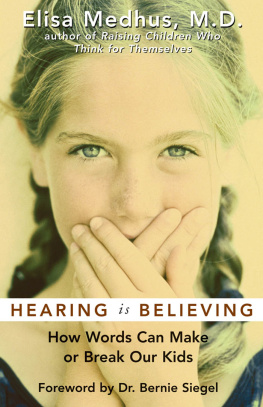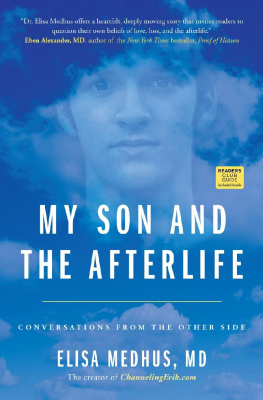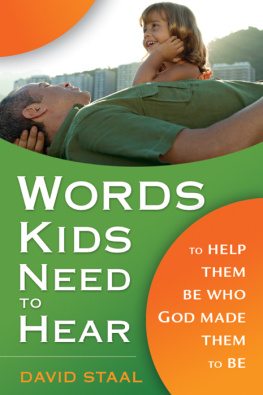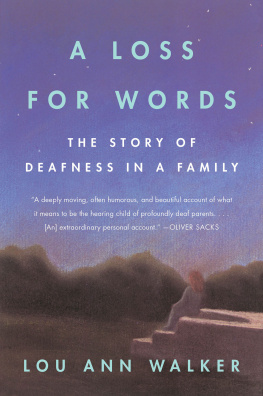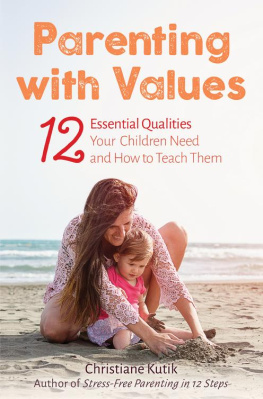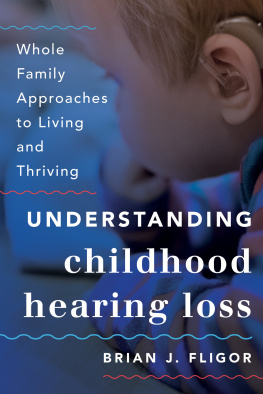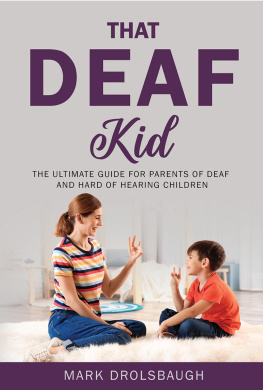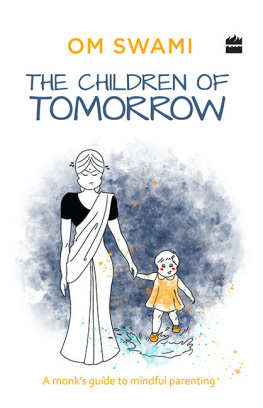Elisa Medhus - Hearing Is Believing: How Words Can Make or Break Our Kids
Here you can read online Elisa Medhus - Hearing Is Believing: How Words Can Make or Break Our Kids full text of the book (entire story) in english for free. Download pdf and epub, get meaning, cover and reviews about this ebook. year: 2010, publisher: New World Library, genre: Children. Description of the work, (preface) as well as reviews are available. Best literature library LitArk.com created for fans of good reading and offers a wide selection of genres:
Romance novel
Science fiction
Adventure
Detective
Science
History
Home and family
Prose
Art
Politics
Computer
Non-fiction
Religion
Business
Children
Humor
Choose a favorite category and find really read worthwhile books. Enjoy immersion in the world of imagination, feel the emotions of the characters or learn something new for yourself, make an fascinating discovery.
- Book:Hearing Is Believing: How Words Can Make or Break Our Kids
- Author:
- Publisher:New World Library
- Genre:
- Year:2010
- Rating:3 / 5
- Favourites:Add to favourites
- Your mark:
Hearing Is Believing: How Words Can Make or Break Our Kids: summary, description and annotation
We offer to read an annotation, description, summary or preface (depends on what the author of the book "Hearing Is Believing: How Words Can Make or Break Our Kids" wrote himself). If you haven't found the necessary information about the book — write in the comments, we will try to find it.
Recipient of The National Parenting Centers 2004 Seal of Approval, Hearing Is Believing offers guidance for parents of children of all ages. Award-winning author Elisa Medhus argues that even seemingly harmless phrases, such as youre such a good girl, can encourage children to become approval seekers, thwart their ability to reason, or both. Over time, these children become less inclined to trust their parents guidance and internalize their values. Exposing potentially harmful words and phrases, many that may surprise readers, this book suggests language changes that are simple to implement and keep up. The words we say to children can have a profound effect positive or negative yet too often adults criticize or praise children without considering what they are really telling the child. By thinking before speaking, we can do more than pay lip service to the values we hope to instill. Hearing Is Believing offers easy-to-implement guidelines for changing how we talk to children. Dr. Elisa Medhus speaks from her own experience with kids, offering much-needed alternatives to the negative or damaging phrases we often use. Her suggestions can help us teach children to think for themselves. Stories illustrate positive results.
Elisa Medhus: author's other books
Who wrote Hearing Is Believing: How Words Can Make or Break Our Kids? Find out the surname, the name of the author of the book and a list of all author's works by series.

